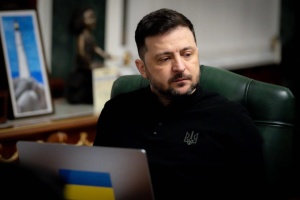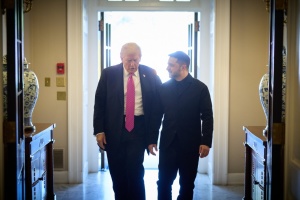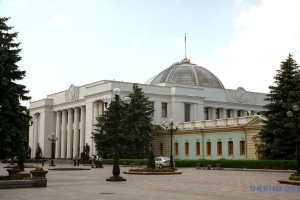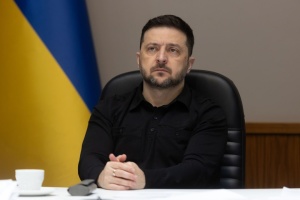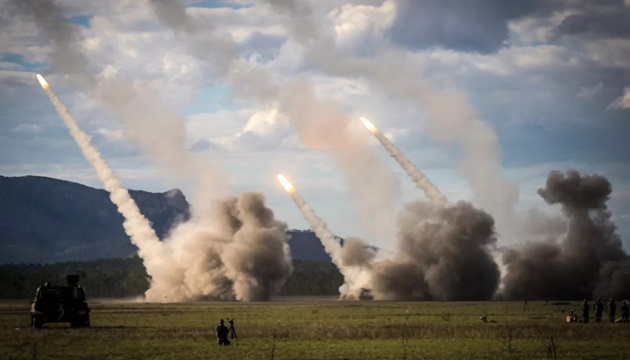
U.S. ban on Ukraine’s use of its donated weapons against targets inside Russia. Does such a ban exist, actually?
The allies are still debating whether to lift the ban on Ukraine’s use of their provided weapons on the sovereign territory of the Russian Federation. This issue has become especially relevant after the escalation of hostilities in the Kharkiv Region. The Ukrainian military, armed with American HIMARS missile launchers, for example, could have halted the enemy’s assault even before it actually began. In preparation for the assault, the Russians had been able to concentrate troops and equipment while staying on their own territory, outside of Belgorod, doing so safe and with impunity, knowing about this U.S. ban.
...As you know, the UK and Sweden have already permitted Ukraine to hit the Russian Federation with the weapons they supplied. This matter is being debated at the French Parliament. NATO Secretary General, Jens Stoltenberg has urged NATO Allies to remove "some of the restrictions." As for the United States, authorities in Kyiv are requesting President Joe Biden to give his nod to Ukrainian strikes inside Russia’s near-the-border areas, at least. Furthermore to this, this matter was discussed at the level of the defense ministers of Ukraine and the United States, Rustem Umerov and Lloyd Austin just days ahead of the 22nd meeting of the Ukraine Defense Contact Group (otherwise known as Ramstein Format) and during it. A little bit earlier, former US Deputy Secretary of State, Victoria Nuland emphasized in an interview to The Hill that our country should be made empowered to use Western weapons against military targets on the invader’s soil. In another “fresh” development, the US House Intelligence Committee filed a similar request with the Pentagon. Even (!) the US House Speaker, Mike Johnson has spoken out his view of that matter: "Ukraine must decide by itself how to wage war." Also, the lifting of the ban on the use of Western weapons inside Russia has been favored by many members of the Congress, including the Chairman of the House Foreign Affairs Committee, Republican Michael McCaul.
However, for now, the White House’s stance remains unchanged. Can it change and when is a question that cannot but cause rage. After all, whereas a plane takes off from an Engels airfield loaded with missiles for a strike on Ukraine, why can't it be targeted and hit while still on ground at the airfield? The same applies to the bomber aircraft that drop glide bombs on targets in Kharkiv and Sumy Oblasts while still flying over Russia’s territory. Why can't they be taken out anywhere while over Russia?
Biden's national security adviser, Jake Sullivan is among those favoring the ban to remain in place. Sullivan, experts say, advocates a U.S.-Russian alliance for confronting China. Proceeding from the latter assumption ... It is assumed that there may be some kind of a non-public, closed-door deal between the Americans and the Russians, which is behind why the White House has persistently kept a veto on the matter under discussion. It’s like it sounds conspiracy, doesn’t it? Yes, it does a little bit. Here we will try to figure it out, in particular, with respect to what the deal is in question. Former Russian Deputy Prime Minister, Alfred Koch, who in 2016 was declared wanted by Putin, believes that in this way Washington is seeking to "beat out" some significant concessions from Moscow in future peace talks. Or it may be something else…
A conceptual suggestion about the need for a U.S.-Russian alliance for confronting China, driven by Sullivan, has completely collapsed
The president of the Center for Global Studies "Strategy XXI", an expert on international security relations, Mykhailo Honchar, said, in a comment to Ukrinform, that the Biden administration’s reluctance to grant us permission to use American weapons inside the Russian Federation could have a background, which has not been recorded officially (although, perhaps, such documents do exist), but, rather, as a kind of an informal “Gentlemen's Agreement". These agreements date back to 2021, where there were certain contacts maintained between the intelligence chiefs of the Russian Federation and the USA - Naryshkin and Burns. Following that, in the fall of the same year, the U.S. began expressing concern about the risk of a full-scale Russian invasion of Ukraine, Mr Honchar reminds.
The expert suggests that, at the time, the Americans probably told the Russians: "We know everything, we clearly see that you are planning this." To this the Russians probably replied, "Yes, we're really planning this and we're not even hiding it."
"This begs a question: why had the USA, knowing as early as 2021 that Russia was making preparations for an invasion, not taken any preventive actions? After all, they had been able to do so. For example, if a pair of American ships came on a friendly mission to the seaport of Odesa a few days before the invasion, the Russian Federation probably would not have dared [to invade]," Mykhailo Honchar believes.
Until 2022, NATO regularly deployed its forces across the Black Sea. But, in early 2022, NATO’s presence there was de facto nullified. NATO ships were no longer deployed to the Black Sea. This suggests, the expert goes on to note, that the United States, at that time, had its own perception about Russia’s potential invasion of Ukraine.
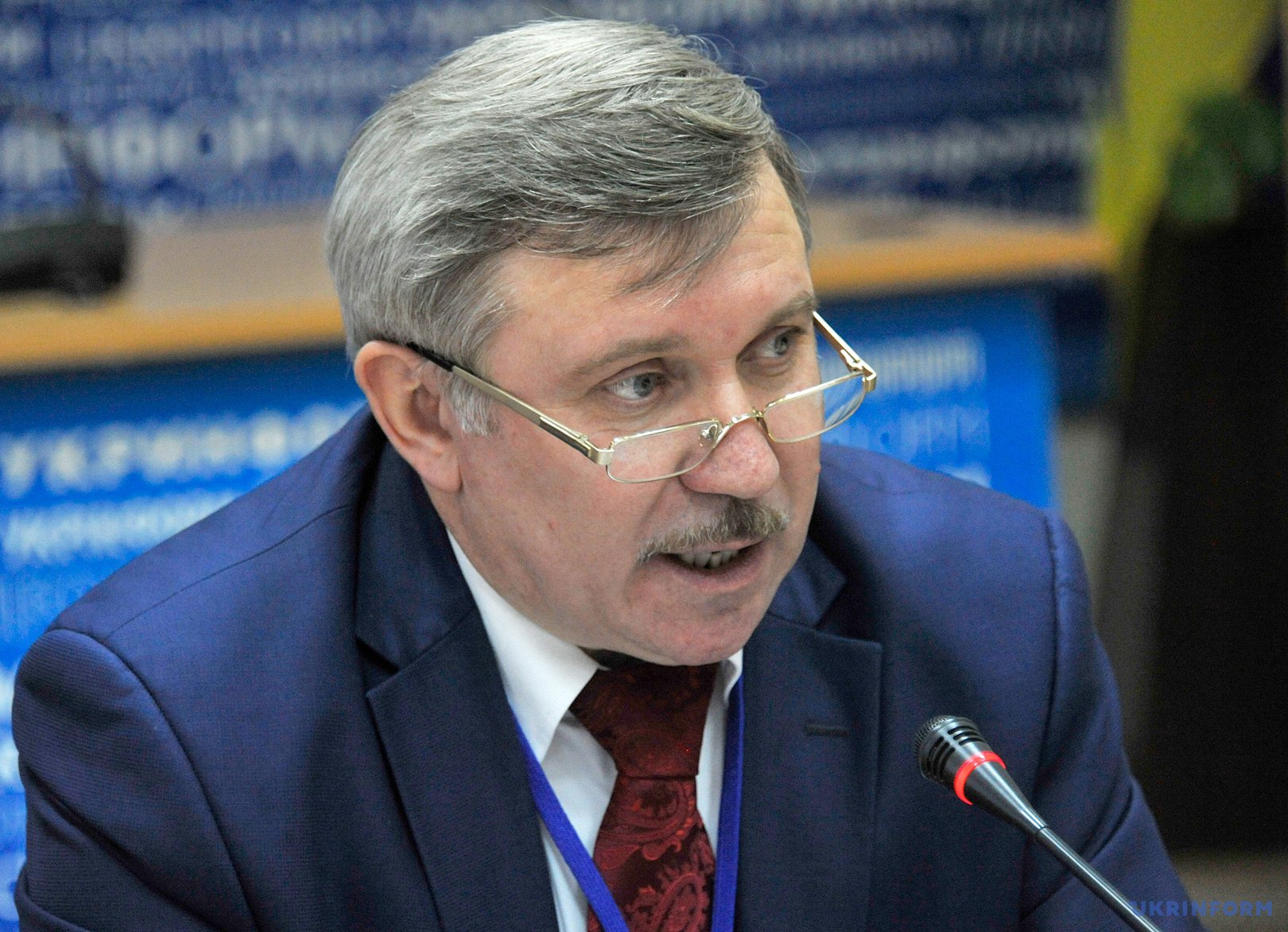
"Hypothetically, proceeding from the assumption that the USA needs a potent ally to confront China, and Russia could well become such an ally (the Russian Federation shares an extended border with China, exceeding 4,000 kilometers in length, making China an existential threat for the Russian Federation), the U.S. was, let’s say so, not completely opposed to an invasion, but on the condition that it is carried out in some hybrid way, Mr. Honchar notes further. The Russian side, perhaps, had convinced the American side that the invasion would not involve a bloody massacre. They probably said that their troops would quickly enter Kyiv, remove the "junta" and - that's it... Now let's recall the days before the invasion, where it was not yet known for sure on which day of February 2022 the invasion would begin. But then Western diplomats began to be evacuated from the Ukrainian capital, Kyiv..."
Mr. Honchar also mentioned an article published by "Ukrainska Pravda", headlined "The Three Longest Days of February...", which, in particular, describes a visit to Washington by Ukraine’s top diplomat, Dmytro Kuleba, on February 23, 2022.
"On that day, Biden began asking Kuleba questions about the situation in Ukraine, gave some advice and was talking about support. The rhetoric of this conversation was reminiscent of saying goodbye to a child with cancer, rather than encouraging and empowering an ally ahead of a life-or-death battle. That day, Biden said goodbye to all of Ukraine in the person of Mr. Kuleba ," the article read.
In that context, the expert recalls how initial shipments of American weapons began to arrive in Ukraine in December 2021.
"It was important what kind of weapons were arriving – FIM-92 Stinger MANPADS, FGM-148 Javelin ATGMs – that is, the weapons more suited for use in guerrilla warfare... Perhaps, there was a request or wish expressed by the Russian side that the shipments should not be too big and, most importantly, should not include kinetic attack capabilities so that it would not carry a risk of damage to the Russian Federation’s territory. Moscow then drew a red line for Washington. However, this, in fact, did not happen as expected... The Kyiv-in-three-days blitzkrieg had never succeeded. Accordingly, all unofficial plans or agreements that might have existed between the Americans and Russians had collapsed as new realities were arising."
But even after that, the USA was in no hurry to provide our country with more capable weapons, such as artillery guns, in particular, HIMARS MLRS.
"And it was only under the pressure from allies, other countries of the West, countries of Central Europe, especially the Baltic Sea countries, that the USA began to change its policies," says Mykhailo Honchar. They notified the Russians, apparently through shadow communication channels, that they had violated the agreements. Moscow can make everything public at any moment, indeed, but denials will be coming from Washington..."
The United States' anti-escalation strategy, which involved turning Russia from an adversary into an ally, has failed. But Washington, of course, will never admit this because it will mean that this current White House administration, the American intelligence services, have made a serious slip-up.
Mr. Honchar further notes that: "The U.S. current foreign and security policies are closely connected with the name of Sullivan, with his vision of the global world, and the need for an American-Russian alliance for confronting China. This, of course, wasn’t Sullivan who invented this design. It existed before him. It was popularized in the 1990s by the now-deceased American author, Tom Clancy. In the early 2000s, he released a political thriller novel, The Bear and the Dragon, which explores the need for a U.S.- Russian alliance for countering China’s potential invasion of Siberia. Be as it may, such a concept is wrong. It is impossible to make Russia into a partner for America. The nature of the Russian Federation, of its ruling regimes (Putin's and all previous ones) with all of their authoritarian and totalitarian mechanisms is what brings the Russian Federation closer to China rather than to the United States. That is why the Sullivan-promoted strategy has failed. Does Sullivan personally understand this, or does Washington understand it? I think they do understand, but cannot admit it. Or they are not willing to. After all, it is not about the Russian Federation or China only. If we look at the US Middle East policy... It is also a failure. Iran has managed to create a whole network of its proxies, who now set the rules of the game in the region. Although this is another topic for another analysis, it reveals the overall failure of the Sullivan-Biden strategy, which has had very bad consequences for many of the US partners.
This concerns Ukraine in the first place...
"The topic of a permission for Ukraine to strike Russia’s sovereign territory with Western weapons has been discussed for a long time," says the president of the Center for Global Studies "Strategy XXI". However, against the background of war escalation in the Kharkiv Region, regular shelling of Ukraine with artillery, missiles, and rockets, the use of glide bombs against the cities of Kharkiv and Odesa, no changes are visible...". The analyst assesses that the Russian Federation intends to implement toward large Ukrainian cities located in close vicinity to Russia’s border or front line a scenario similar to that it had already implemented toward the Syrian city of Aleppo. In this context, the ban on retaliatory strikes against targets on Russia’s territory - against its military facilities, airfields, etc. - looks inadequate.
"This is emphasized not only by Kyiv, but also by the closest US allies. The talks are getting more intense and I think we can expect a positive outcome. Such a permission will be granted. However, the Americans can invent for us some restrictions, such, for example, as pre-negotiated targets for strikes with their supplied weapons. When can this happen? We will learn about it post factum, after the Kremlin will begin complaining about something like "The USA has crossed the red line - ATACMS debris was found at the Kursk airfield." To which the Biden administration will reply through the mouth of its representative at a news briefing: "Taking into account the need for protecting the civilian population, which suffers daily from airstrikes by the Russian Federation, we have permitted Ukraine to use our weapons to carry out countermeasures as appropriate..." Well, the American propaganda machine will be able to find out the appropriate words to articulate this, that’s for sure," the analyst said in conclusion.
A compromise option can be found, particularly: the USA will permit strikes against Russian military targets located, for example, in its areas bordering Ukraine
Oleksandr Musienko, the head of the Center for Military and Legal Studies, has doubts about the existence of any secret agreements between the USA and the Russian Federation.
"Even if we assume that they did exist at some time, Moscow has already nullified and trampled upon them," he says.
Russia has moved to escalating its war against Ukraine and the West.

"First of all, we are talking about the expansion of Russia’s offensive operations in the Kharkiv Region. Secondly, the Russian Federation has increased the number of strikes on Ukrainian energy infrastructures, in particular hydroelectric power stations and gas storage facilities. Thirdly, military exercises involving tactical nuclear weapons have begun, and the combat readiness of nuclear forces is also being tested on the territory of Belarus, Mr. Musienko says. The next step, which I think will be a strong indication of an escalation in relations with NATO and EU countries, is that Russia, acting, in fact, unilaterally and in violation of relevant agreements and the international maritime law, has decided to expand its territorial waters in the Baltic Sea".
The expert additionally reminded that the Russian Federation carries out subversive activities in the European Union countries, which carries the risk of terrorist attacks and physical assaults on political figures.
"Put it differently, there are lots of facts suggesting that Russia is escalating tensions in relations [with the West]," the military expert added.
The West therefore has fully transparent rationale and actually has free hands to permit Ukraine to use the donated weaponry for strikes directly on Russian territory.
"I think a compromise option will be found: Ukraine can be empowered to hit military targets inside Russia’s areas bordering Ukraine - Belgorod, Kursk, and Rostov Regions, where Russia is concentrating its forces for offensive operations in Ukraine," said the head of the Center for Military and Legal Studies.
After all, in the current context, it meets the West’s interests.
"There is a very important consideration: Grant Shapps, the Secretary of Defense of the United Kingdom, said the other day that China is either preparing or has already started providing Russia with lethal weapons, and this is a truly significant game changer development. And therefore, this frees the hands of the West, which really needs to showcase its capabilities and leadership, not only to Russia, but to China as well. There are many arguments in favor of the fact that the solution we are seeking will be implemented. When? I think the decision will come in the next few weeks, not even months. But we, however, will find out about it after the fact," said Oleksandr Musienko.
We have received a clear signal: the USA does not encourage, but does not object either to strikes with donated weapons on the territory of the Russian Federation
Ex-Foreign Minister, Volodymyr Ohryzko as well does not believe in the existence of secret agreements between the Americans and Russians, at least for today: "Were there any agreements before? I do not rule it out. Are there any agreements now - I don't think so. And here I proceed from a simple truth: if such agreements did exist, then we would not have any weapons at all. But since we have them, and the quality and quantity are growing - all talks on this topic are only theoretical reflections, that is, they do not have any practical basis. But what the US administration definitely has is fear. And this fear paralyzes the political will of our American partners; they are constantly fearing the term ”escalation,” which they invented for themselves."
Mr. Ohryzko names the above mentioned Sullivan and Burns as the main contributors to this fear...
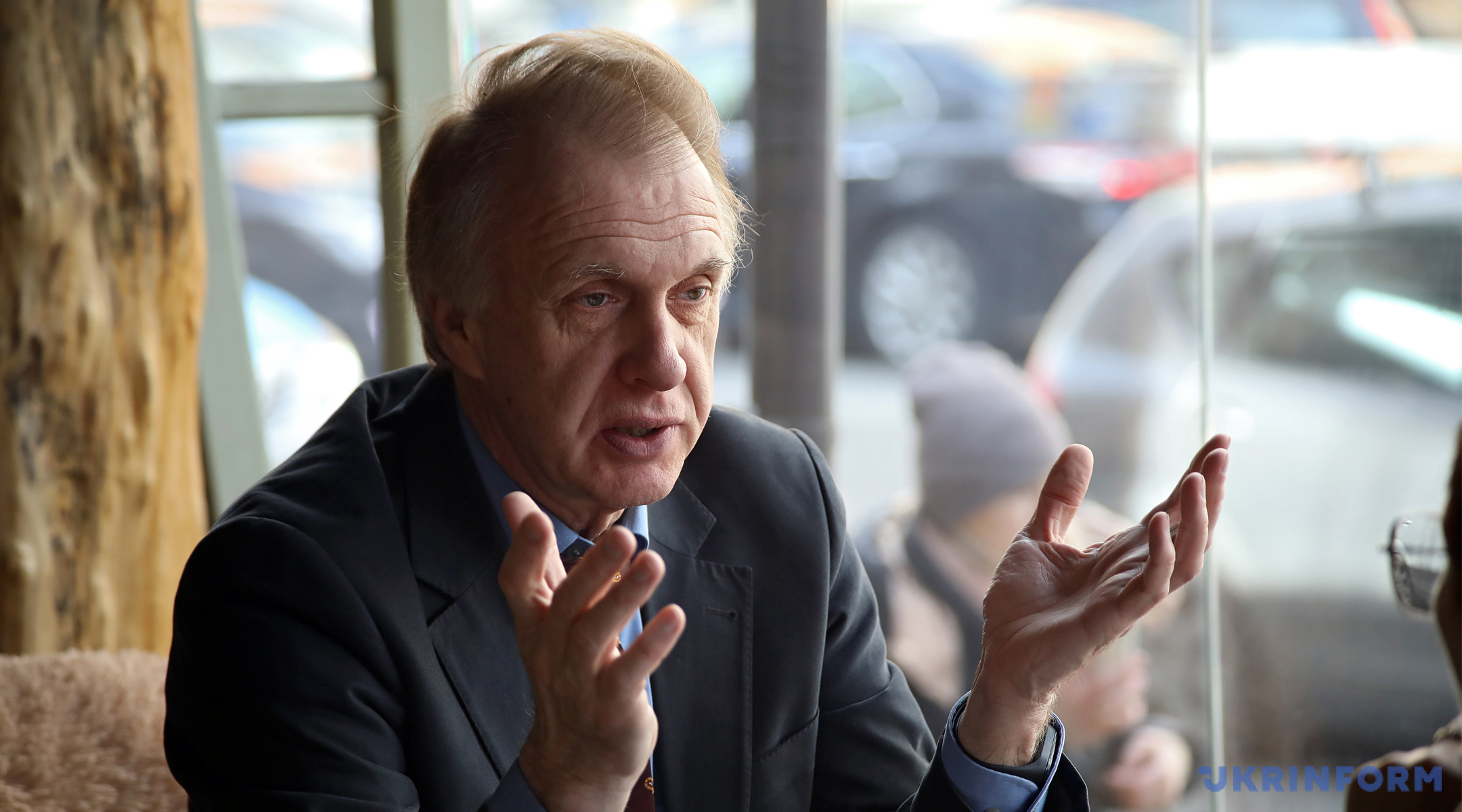
"This group also includes some American generals, for example, the former chief of the joint staffs, General [Mark] Milley. All of them constantly set red lines for themselves and are afraid to even approach them. This causes the paralysis of political will. And where there is a lack of political will, nothing works," the diplomat said.
On the other hand, mention should be made of another "wing" in the Biden administration, led by the Secretary of State, [Anthony] Blinken.
"Even though some of Blinken's statements may sound ambiguous, he is a diplomat, and therefore, is not supposed to speak too explicitly. But it seems to me that he, along with Pentagon chief [Lloyd] Austin, individual congressmen and senators, clearly express their support for Ukraine. Will they be able to convince Biden now? We'll wait and see," says Mr. Ohryzko.
At the same time, the expert drew attention to an important aspect: "At the end of April, the US Congress passed a decision to provide aid to Ukraine. In this decision, there was not a single word or clause stating that the Biden administration is empowered to transfer these weapons provided they will not be used on the territory of the Russian Federation. What does it mean? The fact is that the White House has got engaged in what might be described as "artistic amateurism", that is, interprets the decision of the Congress as it finds appropriate, imposing some additional conditions on Ukraine. Does the Biden administration have legal grounds for this? The answer to this question was given by Blinken, who, incidentally, has reiterated on many occasions, both here in Kyiv and now in Washington: "We do not encourage, but..." As a diplomat, I will say that any of the words that come before "BUT" do not have any content. After the "BUT", Blinken said as follows: "...but this is up to Kyiv to decide."
That is, according to Mr. Ohryzko, the USA does not encourage, but does not oppose to it either.
"So I can't see why we keep banging on the open door so persistently. Have we received the weapons? Yes. Was there a formal ban imposed on the use of these weapons on the territory of the Russian Federation? No. Perhaps someone whispered something in the ear of our representatives, but they might not have heard, or it was a fault of an interpreter who conveyed the wrong meaning. Well, anything happens... So let's not blow on cold water, but instead do what we think is expedient," Volodymyr Ohryzko summed up.
Myroslav Liskovych. Kyiv

